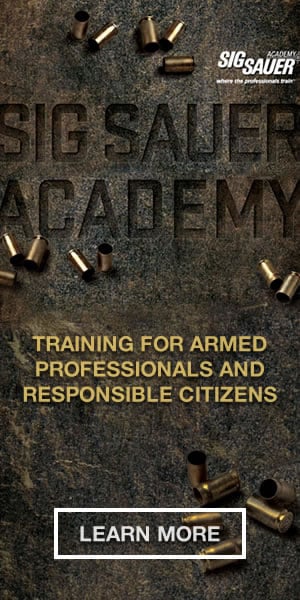I remember the day well. It was 1980 and I was in the first of two police academy training classes that I have been through in my 35 year law enforcement career.
We were talking issues of deadly force, and the application of firearms in the arrest process. It was an intriguing topic for me, as I had been a firearms enthusiast since the time I was eight years old and my dad had taken my brother and I shooting for the first time. The topic was taught by Larry Chrisman, a Sergeant with the Licking County Sheriff's Office and one of the two firearms instructors at the agency. It was he who inspired me to become a police firearms instructor just a few years later.
We were on the topic of how to handle off-duty responses to crimes being committed in our presence. I was 22 years old at the time, and confident in my shooting ability whether armed with my .357 Magnum Smith and Wesson Model 19 "duty" revolver or my Model 36 .38 Special snub nose off-duty revolver. The discussion had turned to actions to be taken while witnessing crimes while off-duty, in particular what should we do if we were present as a customer during a bank robbery. I anticipated being told by Sgt. Chrisman that we were to try and find cover and "open up" on the perpetrators thus saving the day and garnering a lifetime of praise for our heroic deed.His response crushed my wild idealism and tore off my Superman cape. He said the best thing we could do, is to remain calm, and take no action unless an innocent party was about to be harmed. We were to be good witnesses, and that was all.
What?! My mind was reeling over that statement. I momentarily questioned the validity of that statement. But not for long, I admired Sgt. Chrisman experience too much, and realized he was right. I am passing that advice along to you, because it applies to the handgun permit holder just as much, if not more, than it does to the off-duty cop.
In the first Spiderman movie, Peter Parker's Uncle Ben tells him "with great power comes great responsibility". Although this statement comes from a film about a fictional superhero, it is directly applicable to those of you who have chosen to protect yourselves and your loved ones by lawfully carrying a concealed firearm.
Carrying a lawfully concealed firearm is a much more serious venture than using a firearm for home defense (in most cases), simply because you are out in public, and there may be uninvolved bystanders around you. Once you move to take defensive action with that concealed firearm, you are no longer a bystander. You are involved for better or worse, and are responsible for the damage caused by any rounds that you fire.
The very last thing any cop wants to be involved in is a shooting and you should feel the same way. Even if the shooting was later found to be entirely justified, the paperwork, legal fees, worry, frustration, second guessing and criticism of your actions by others is a burden to be avoided. And as the Zimmerman case points out, just as much to be avoided by civilians.
So, back to the academy bank robbery scenario. If the suspect or suspects (including the ones you may not be aware of-which is another important consideration in taking action) are not actively harming anyone, you do what they say, and observe as calmly as possible. 99% of the time, they will leave once they have gotten their cash. Then let them go. Cash, property or valuables are nothing worth dying over, or causing others to die over. It's just money. In these cases, be a good witness for the police, whether you are an off-duty cop or civilian permit holder.
However, if the suspect(s) in the robbery situation begins to, or appears to be ready to, kill innocent parties, then you may have to take action, because the next one to be harmed may be you, a family member, or a friend. If you do bring your gun to bear, and have to fire, secure it once the situation is over so you are not mistaken as an offender when the police arrive. Make sure you do exactly what the police tell you to do. They may even handcuff you until everything is sorted out. While you know you're the good guy or gal, they don't.
One other point that I will offer here about carrying a concealed firearm-it doesn't make you bulletproof.
I have carried concealed off-duty firearms of various sorts nearly every day of my 35 year law enforcement career. It is an absolutely essential tool, as I may have to take or participate in, law enforcement action while off-duty. But just because I have that off-duty gun, it doesn't mean that I knowingly drive into high crime areas of town, or go places that I wouldn't go while unarmed. In fact, that's a good question to ask yourself. Would I go to this location, or participate in this particular activity if I did not have my permit handgun? If the answer to that is "no", then it means that you shouldn't go there when armed either! Pretty simple, right? But I fear too many people don't think that way when they take on that new mantle of responsibility, and the presence of that handgun means that they can handle any situation they might run across.
Concealed carry permit holders should realize that their handgun should be carried as a last resort option ONLY. It is to be drawn, displayed and pointed only when no other option such as escape is available. Having that permit handgun if anything should keep you more alert to potential danger than you ever were before you obtained that permit. Exercise the right to use it only when your life, or the life of another, absolutely depends on that course of action.


